A clear warning has been issued by ISRO Chief S Somnath, who cited past impacts and the possible destruction asteroid strikes could bring to Earth. The tragic Tunguska incident on June 30, 1908, serves as a sobering reminder of asteroids' devastating potential. Over the Tunguska Forest in Siberia, an asteroid or comet detonated in Earth's atmosphere, causing a 12-megaton explosion that destroyed 80 million trees over 2,150 square kilometres. The heat and shockwave from the impact travelled kilometres.
A clear warning has been issued by ISRO Chief S Somnath, who cited past impacts and the possible destruction asteroid strikes could bring to Earth. The tragic Tunguska incident on June 30, 1908, serves as a sobering reminder of asteroids' devastating potential. Over the Tunguska Forest in Siberia, an asteroid or comet detonated in Earth's atmosphere, causing a 12-megaton explosion that destroyed 80 million trees over 2,150 square kilometres. The heat and shockwave from the impact travelled kilometres.
The 370-meter-diameter near-Earth asteroid Apophis is currently the centre of attention for astronomers. Apophis is predicted to come within decades of Earth, with encounters anticipated on April 13, 2029, and again in 2036. Somnath emphasised that an impact by an asteroid could wipe out life as we know it and cause global destruction.
He said,"In our lifetimes of 70 to 80 years, we might not see such a tragedy, which is why we do not take it so seriously. In the history of the world and the universe, the approach of asteroids to planets and their influence are frequent occurrences. I have seen comet Shoemaker Levy hit Jupiter. If such an event were to happen on Earth, we would all be extinct."
He added, "These are real possibilities. We need to prepare ourselves. This should not happen to our Earth. The human race and all living beings must survive here. We may not be able to stop an asteroid impact, but alternative means should be adopted. There is a way to deflect asteroids. Earth-threatening objects should be identified and diverted. Sometimes these efforts may fail, so technology must evolve. We need to acquire prognostic skills and develop the ability to launch heavy instruments into space to deflect asteroids. Monitoring should be improved. Countries should work together on this," as per reports.
![submenu-img]() Manisha Koirala says she has only fallen for wrong men: 'There was a red flag every time but...'
Manisha Koirala says she has only fallen for wrong men: 'There was a red flag every time but...'![submenu-img]() Watch: MS Dhoni, Hardik Pandya dance with Salman Khan on 'Jumme ki raat' at Anant-Radhika's sangeet ceremony
Watch: MS Dhoni, Hardik Pandya dance with Salman Khan on 'Jumme ki raat' at Anant-Radhika's sangeet ceremony![submenu-img]() IND vs ZIM, 2nd T20I Dream11 prediction: Fantasy cricket tips for India vs Zimbabwe
IND vs ZIM, 2nd T20I Dream11 prediction: Fantasy cricket tips for India vs Zimbabwe![submenu-img]() Bigg Boss OTT 3: Anil Kapoor 'exposes' Sana Makbul's fake friendship with Naezy, says 'aap dosti ka tamasha...'
Bigg Boss OTT 3: Anil Kapoor 'exposes' Sana Makbul's fake friendship with Naezy, says 'aap dosti ka tamasha...'![submenu-img]() Alaviaa Jaaferi slammed for hugging Justin Bieber at Anant Ambani-Radhika Merchant's sangeet: 'He was so uncomfortable'
Alaviaa Jaaferi slammed for hugging Justin Bieber at Anant Ambani-Radhika Merchant's sangeet: 'He was so uncomfortable'![submenu-img]() Meet IAS officer, who did BTech, MBA, MA, comes from a family of civil servants, cracked UPSC exam, secured AIR...
Meet IAS officer, who did BTech, MBA, MA, comes from a family of civil servants, cracked UPSC exam, secured AIR...![submenu-img]() Meet Indian genius who cracked ITT-JEE, NEET entrance exam but did not take admission due to...
Meet Indian genius who cracked ITT-JEE, NEET entrance exam but did not take admission due to...![submenu-img]() NEET UG 2024 counselling postponed until further notice amid paper leak row: Report
NEET UG 2024 counselling postponed until further notice amid paper leak row: Report![submenu-img]() FMGE June 2024: Exam to be held today, NBEMS issues exam-day instructions
FMGE June 2024: Exam to be held today, NBEMS issues exam-day instructions![submenu-img]() Meet IAS officer, who fought against corruption, was shot six times, lost an eye, he is...
Meet IAS officer, who fought against corruption, was shot six times, lost an eye, he is...![submenu-img]() Hathras Stampede Case: STF Arrests Bhole Baba's Servant Ramladait
Hathras Stampede Case: STF Arrests Bhole Baba's Servant Ramladait![submenu-img]() BSP Tamil Nadu Chief K Armstrong Hacked To Death: 8 Suspects Arrested In Chennai
BSP Tamil Nadu Chief K Armstrong Hacked To Death: 8 Suspects Arrested In Chennai![submenu-img]() Days After Hathras Stampede Tragedy, An On-Camera Statement From Bhole Baba, Says 'Deeply Saddened…'
Days After Hathras Stampede Tragedy, An On-Camera Statement From Bhole Baba, Says 'Deeply Saddened…'![submenu-img]() UK PM Rishi Sunak Resigns, Concedes Defeat To Keir Starmer In UK Polls As Labour Wins Over 300 Seats
UK PM Rishi Sunak Resigns, Concedes Defeat To Keir Starmer In UK Polls As Labour Wins Over 300 Seats![submenu-img]() Rahul Gandhi Meets The Victims Of Hathras Stampede, Assures Full Support From Congress
Rahul Gandhi Meets The Victims Of Hathras Stampede, Assures Full Support From Congress![submenu-img]() DNA Verified: Did Kangana Ranaut party with gangster Abu Salem? Actress reveals who's with her in viral photo
DNA Verified: Did Kangana Ranaut party with gangster Abu Salem? Actress reveals who's with her in viral photo![submenu-img]() DNA Verified: New Delhi Railway Station to be closed for 4 years? Know the truth here
DNA Verified: New Delhi Railway Station to be closed for 4 years? Know the truth here![submenu-img]() DNA Verified: Did RSS chief Mohan Bhagwat praise Congress during Lok Sabha Elections 2024? Know the truth here
DNA Verified: Did RSS chief Mohan Bhagwat praise Congress during Lok Sabha Elections 2024? Know the truth here![submenu-img]() DNA Verified: Is CAA an anti-Muslim law? Centre terms news report as 'misleading'
DNA Verified: Is CAA an anti-Muslim law? Centre terms news report as 'misleading'![submenu-img]() DNA Verified: Lok Sabha Elections 2024 to be held on April 19? Know truth behind viral message
DNA Verified: Lok Sabha Elections 2024 to be held on April 19? Know truth behind viral message![submenu-img]() Streaming This Week: Mirzapur season 3, Srikanth, Garudan, latest OTT releases to binge-watch
Streaming This Week: Mirzapur season 3, Srikanth, Garudan, latest OTT releases to binge-watch![submenu-img]() Remember Parzaan Dastur? Cute Sikh kid from Shah Rukh Khan's Kuch Kuch Hota Hai, 'Jalebi boy', who now works as...
Remember Parzaan Dastur? Cute Sikh kid from Shah Rukh Khan's Kuch Kuch Hota Hai, 'Jalebi boy', who now works as...![submenu-img]() Meet Andy Long, Kalki 2898 AD's action director, who has worked with Ajay Devgn, Vidyut Jammwal; he is Jackie Chan's...
Meet Andy Long, Kalki 2898 AD's action director, who has worked with Ajay Devgn, Vidyut Jammwal; he is Jackie Chan's...![submenu-img]() Kamal Haasan's Indian 2 gets U/A certificate, CBFC asks these 5 changes, including replacement of...
Kamal Haasan's Indian 2 gets U/A certificate, CBFC asks these 5 changes, including replacement of...![submenu-img]() In pics: Team India's T20 World Cup victory parade in Mumbai
In pics: Team India's T20 World Cup victory parade in Mumbai![submenu-img]() Hathras stampede: Main accused Devprakash Madhukar sent to 14-day judicial custody, police say he was...
Hathras stampede: Main accused Devprakash Madhukar sent to 14-day judicial custody, police say he was...![submenu-img]() PM Modi speaks with new UK PM Starmer, invites him to India, agree to work for early conclusion of...
PM Modi speaks with new UK PM Starmer, invites him to India, agree to work for early conclusion of...![submenu-img]() Muharram 2024: Date, history, significance of the Islamic New Year
Muharram 2024: Date, history, significance of the Islamic New Year![submenu-img]() Gujarat: Six-storey building collapses in Surat, many feared trapped
Gujarat: Six-storey building collapses in Surat, many feared trapped![submenu-img]() Anant Ambani-Radhika Merchant wedding: Mumbai police issues traffic restrictions; key routes to avoid
Anant Ambani-Radhika Merchant wedding: Mumbai police issues traffic restrictions; key routes to avoid![submenu-img]() Lok Sabha Speaker's Election: What does the Constitution say?
Lok Sabha Speaker's Election: What does the Constitution say?![submenu-img]() Explained: Why is Kerala demanding to change its name to Keralam?
Explained: Why is Kerala demanding to change its name to Keralam?![submenu-img]() DNA Explainer: What is Kafala system that is prevalent in gulf countries? Why is it considered extremely brutal?
DNA Explainer: What is Kafala system that is prevalent in gulf countries? Why is it considered extremely brutal? ![submenu-img]() Lok Sabha Elections 2024: What are exit polls? When and how are they conducted?
Lok Sabha Elections 2024: What are exit polls? When and how are they conducted?![submenu-img]() DNA Explainer: Why was Iranian president Ebrahim Raisi seen as possible successor to Ayatollah Khamenei?
DNA Explainer: Why was Iranian president Ebrahim Raisi seen as possible successor to Ayatollah Khamenei?![submenu-img]() Manisha Koirala says she has only fallen for wrong men: 'There was a red flag every time but...'
Manisha Koirala says she has only fallen for wrong men: 'There was a red flag every time but...'![submenu-img]() Bigg Boss OTT 3: Anil Kapoor 'exposes' Sana Makbul's fake friendship with Naezy, says 'aap dosti ka tamasha...'
Bigg Boss OTT 3: Anil Kapoor 'exposes' Sana Makbul's fake friendship with Naezy, says 'aap dosti ka tamasha...'![submenu-img]() Alaviaa Jaaferi slammed for hugging Justin Bieber at Anant Ambani-Radhika Merchant's sangeet: 'He was so uncomfortable'
Alaviaa Jaaferi slammed for hugging Justin Bieber at Anant Ambani-Radhika Merchant's sangeet: 'He was so uncomfortable'![submenu-img]() Meet star kid whose father sold property, mother sold jewellery, was bullied in childhood, is now worth Rs 1800 crore
Meet star kid whose father sold property, mother sold jewellery, was bullied in childhood, is now worth Rs 1800 crore![submenu-img]() Ryan Reynolds wants to work with this 'amazing' Bollywood star, tells Hugh Jackman 'he will make you look like...'
Ryan Reynolds wants to work with this 'amazing' Bollywood star, tells Hugh Jackman 'he will make you look like...'![submenu-img]() World's largest elevator, lotus ballroom: Inside details of grand venue of Anant Ambani-Radhika wedding
World's largest elevator, lotus ballroom: Inside details of grand venue of Anant Ambani-Radhika wedding![submenu-img]() Viral video: Woman tries to pose with a tiger, what happens next will shock you
Viral video: Woman tries to pose with a tiger, what happens next will shock you![submenu-img]() In pics: Isha Ambani creates fashion history, wears first ever custom Schiaparelli saree to Anant-Radhika's sangeet
In pics: Isha Ambani creates fashion history, wears first ever custom Schiaparelli saree to Anant-Radhika's sangeet![submenu-img]() Man uses alligator to open beer can in viral video, internet is shocked
Man uses alligator to open beer can in viral video, internet is shocked![submenu-img]() Snake bites man in Bihar, he bites it back twice, guess who survived
Snake bites man in Bihar, he bites it back twice, guess who survived











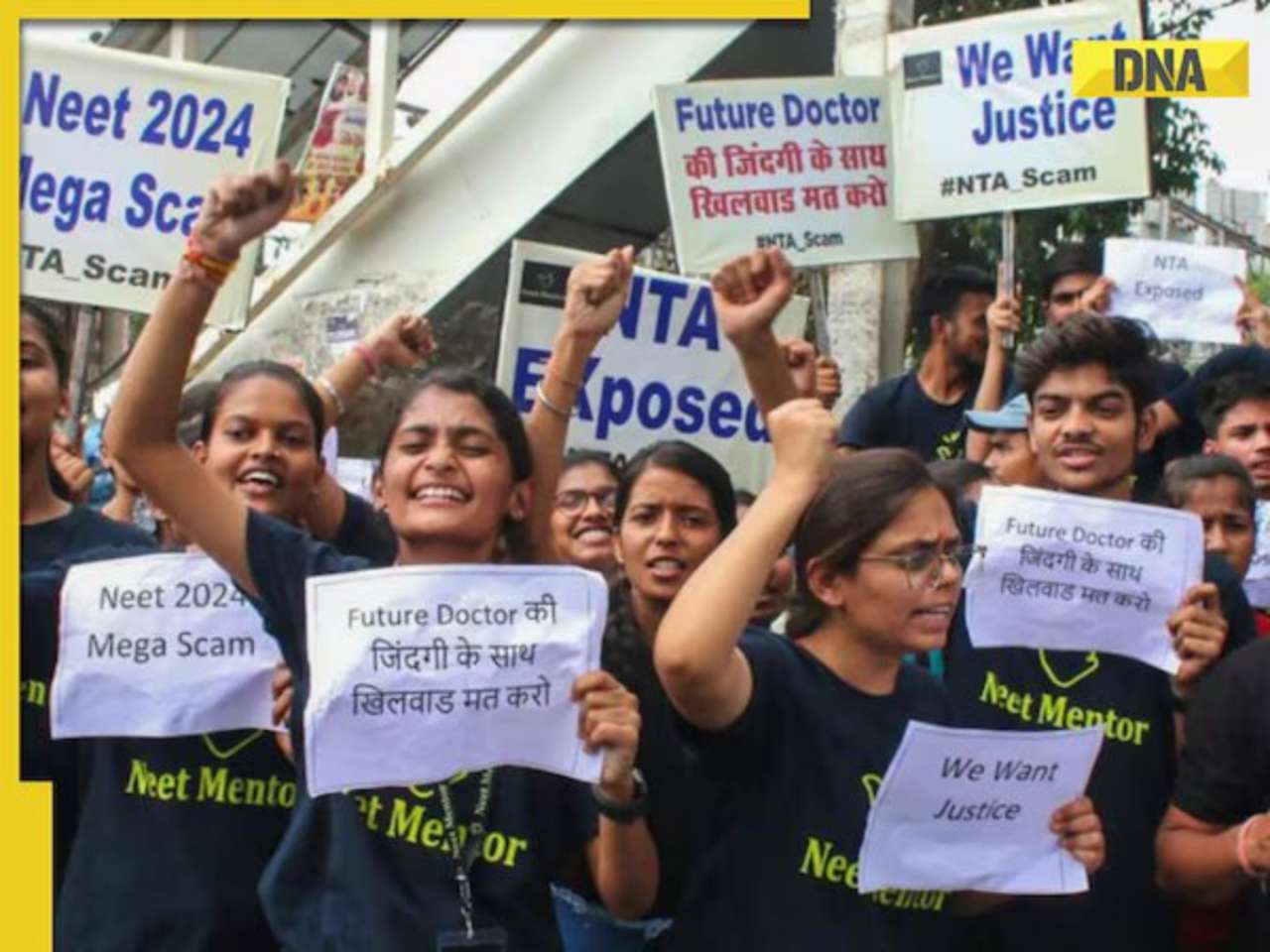

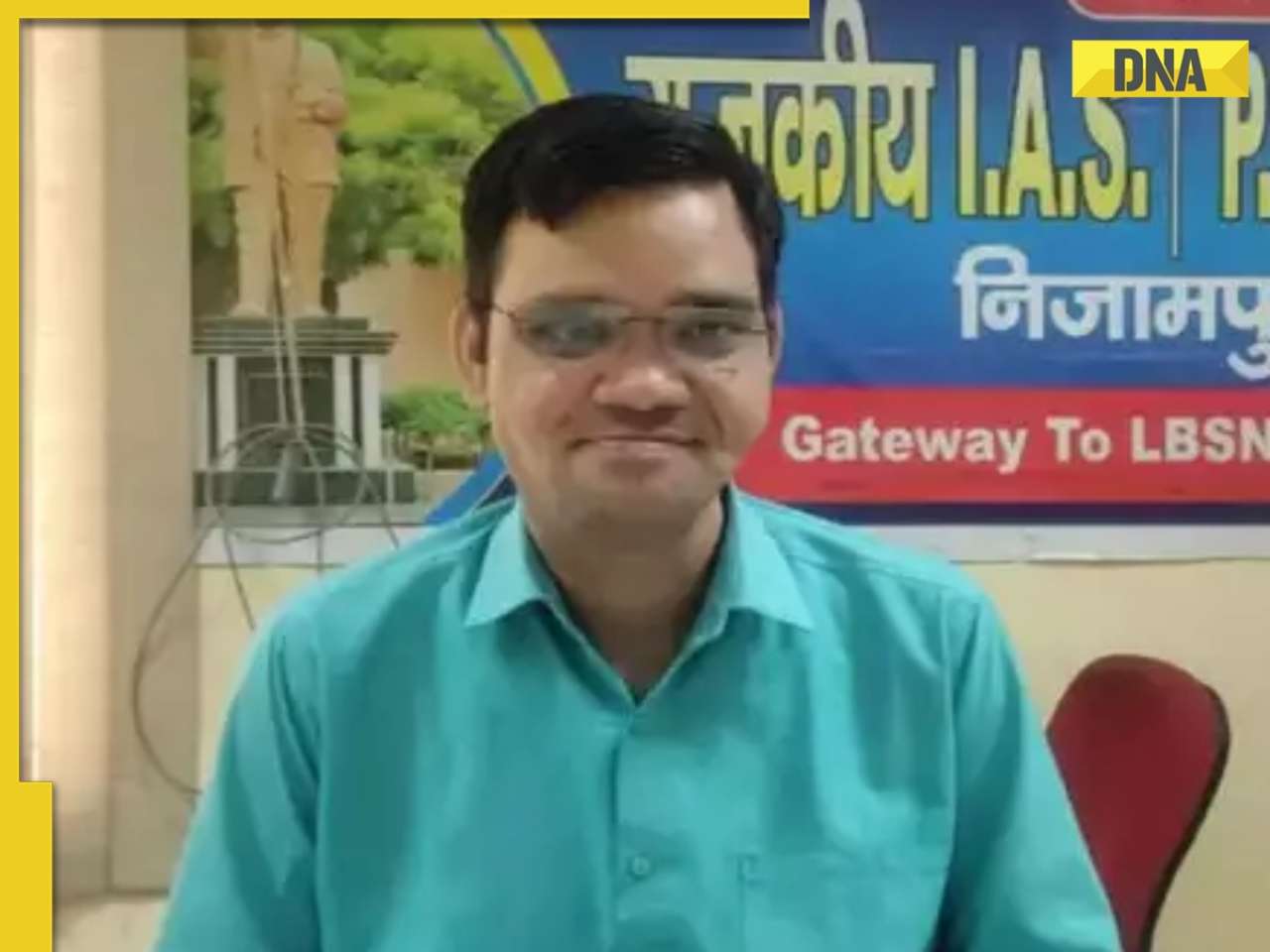















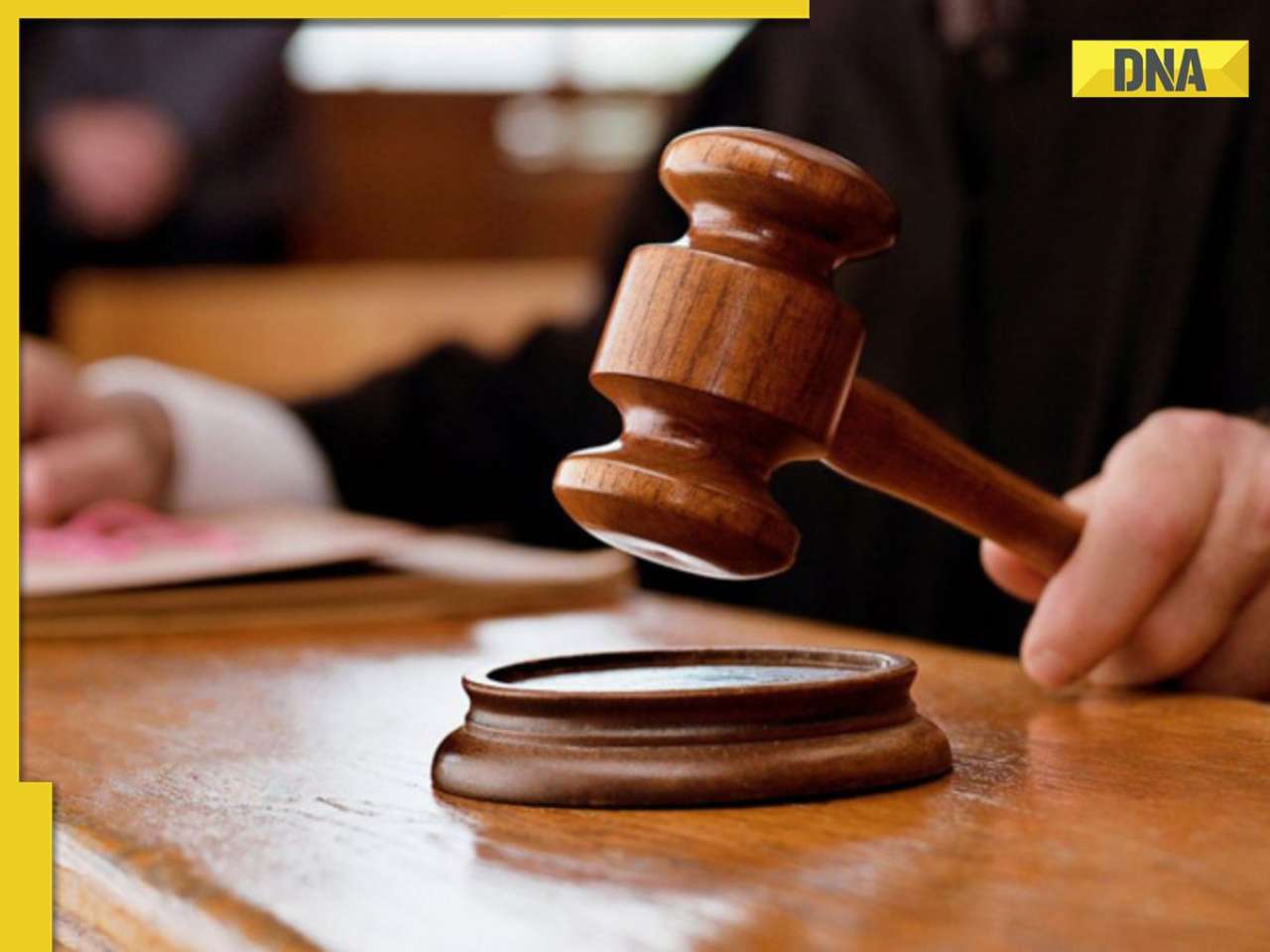
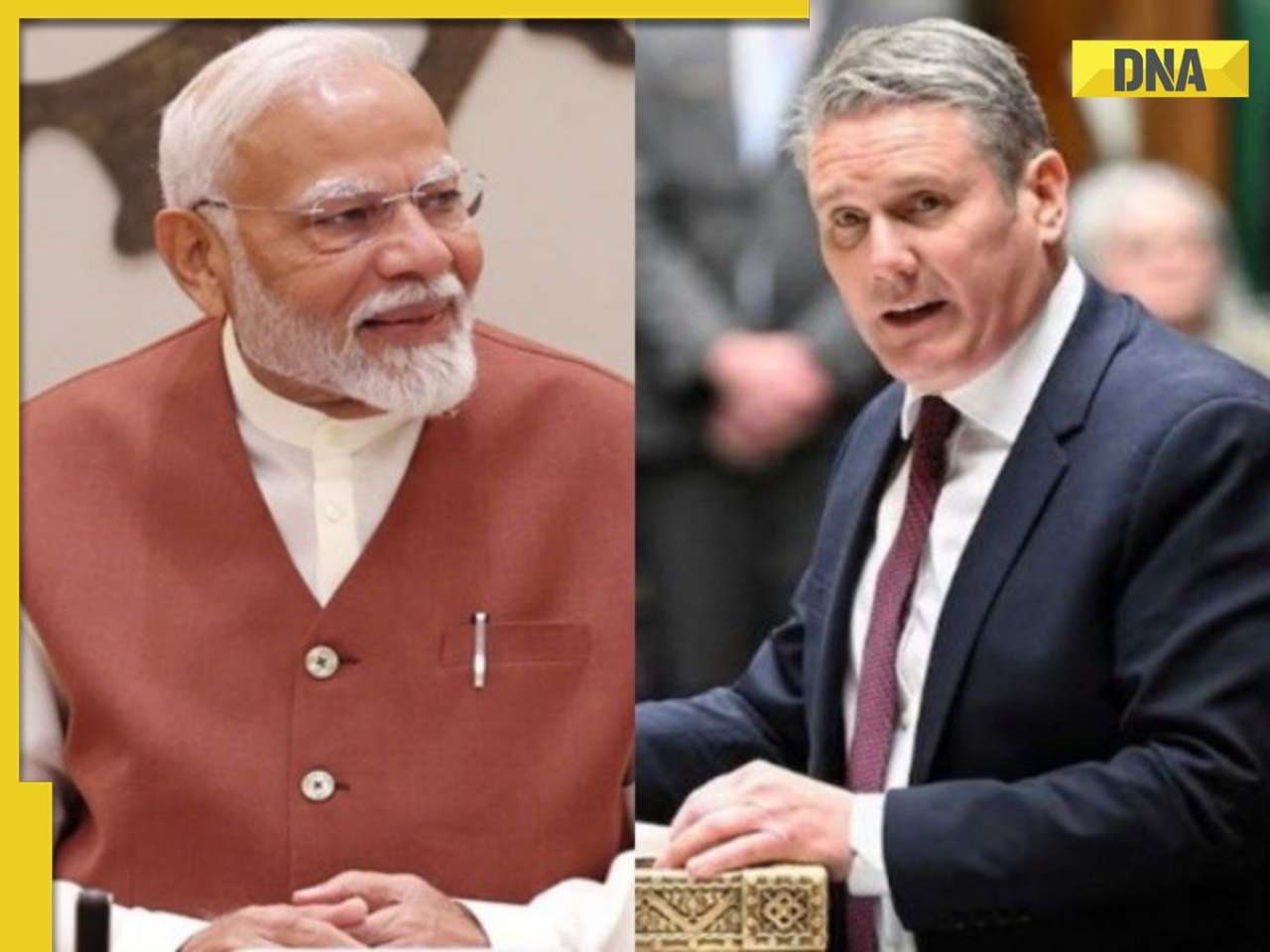

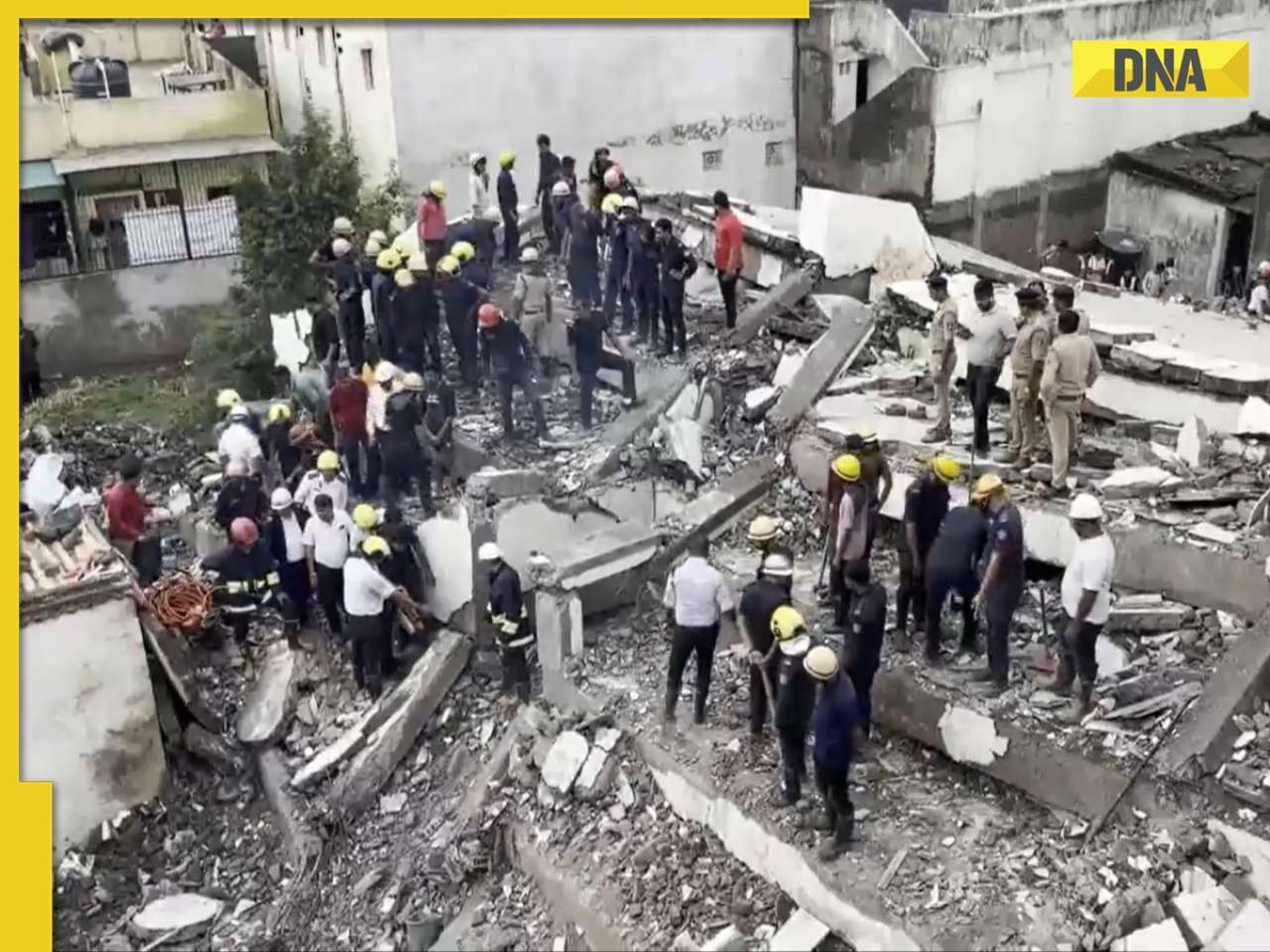

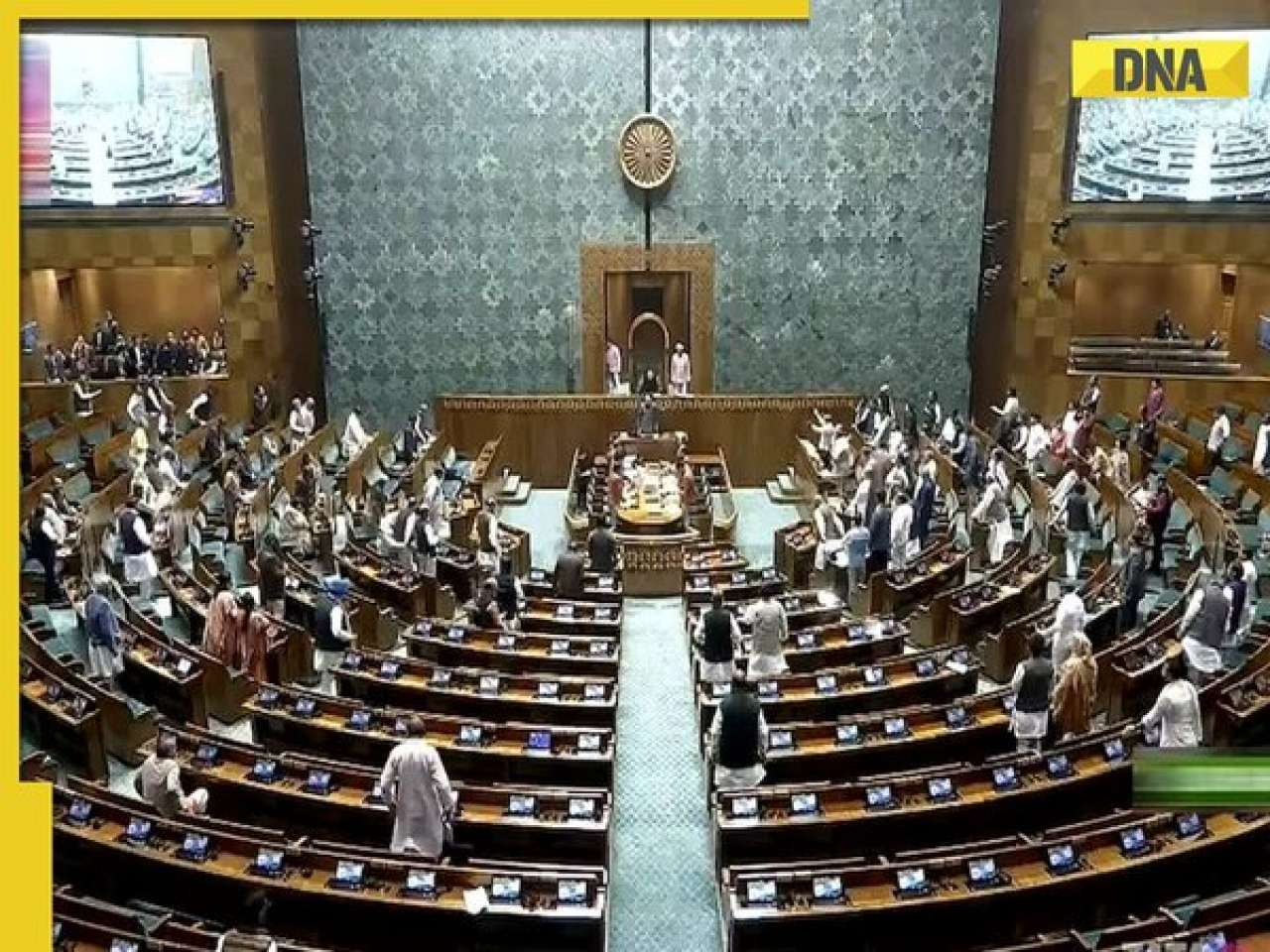
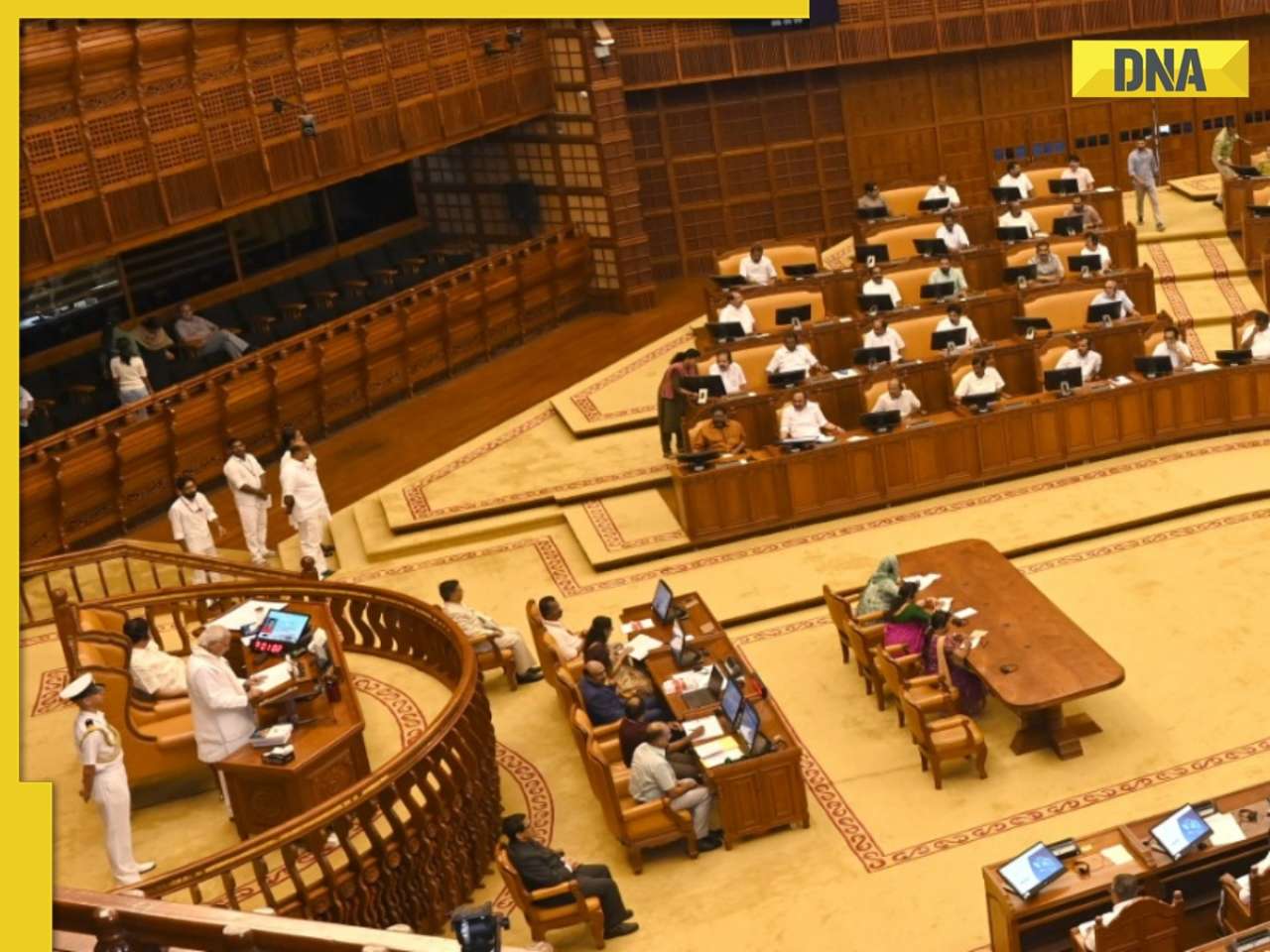



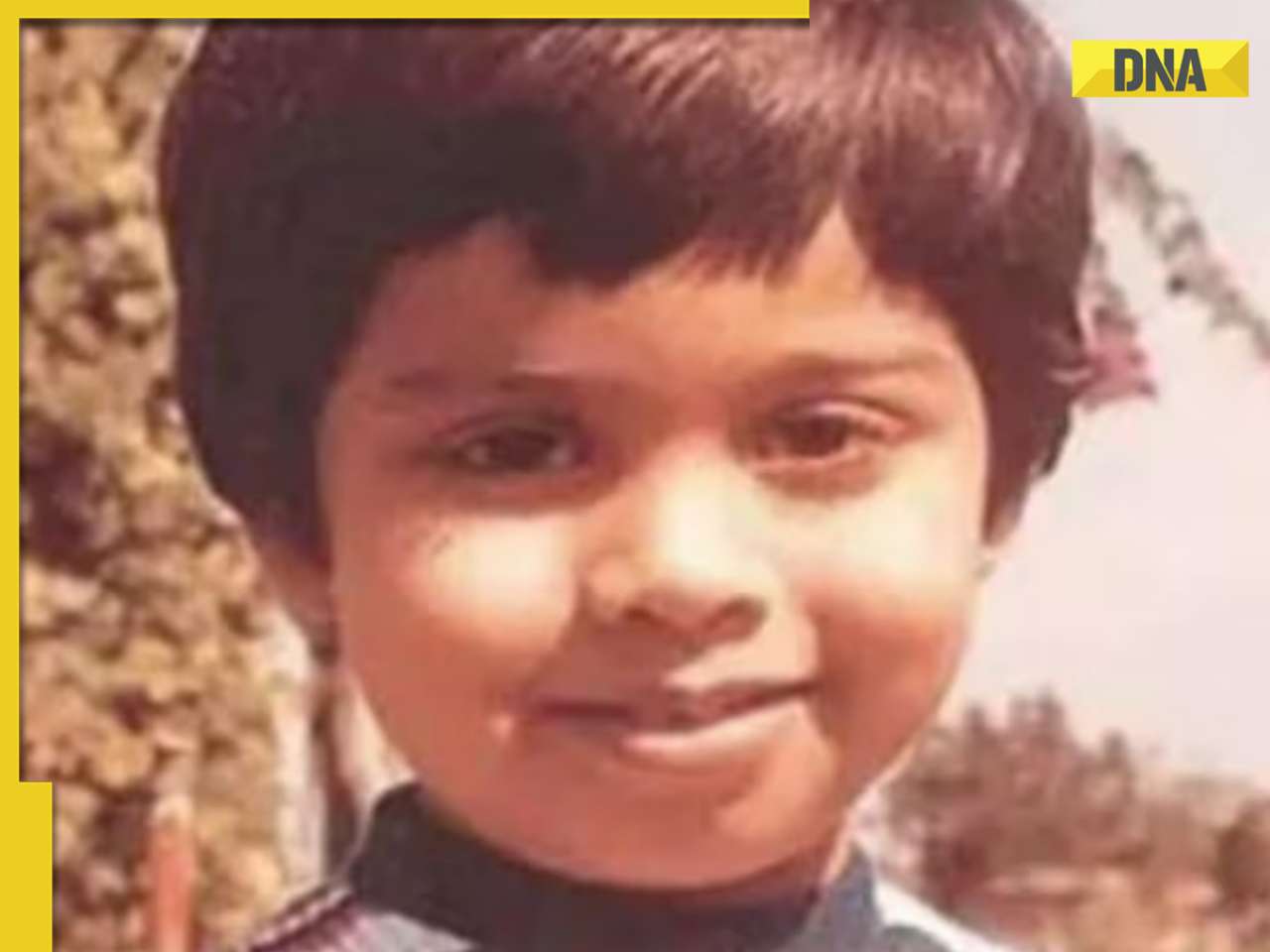




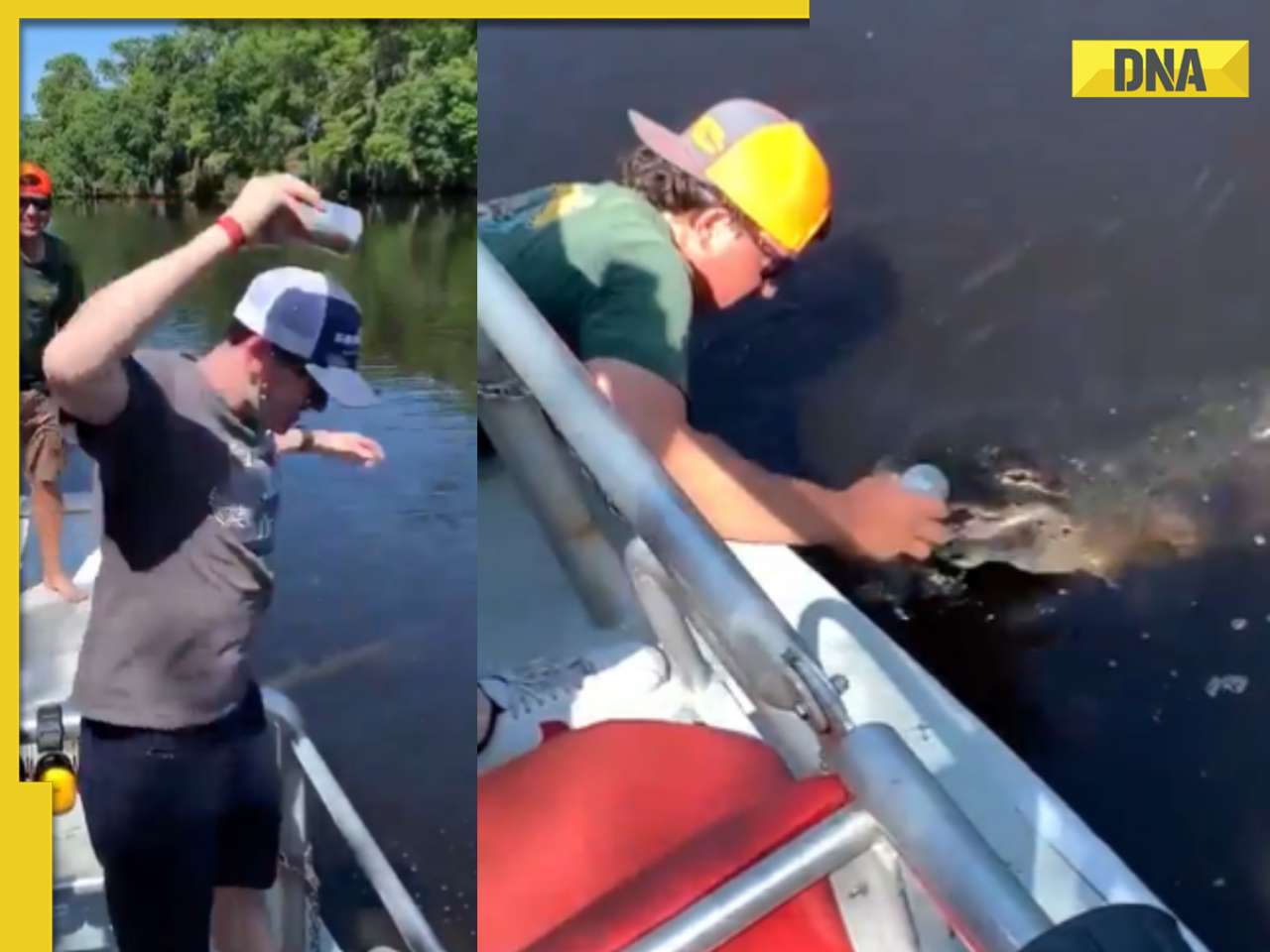
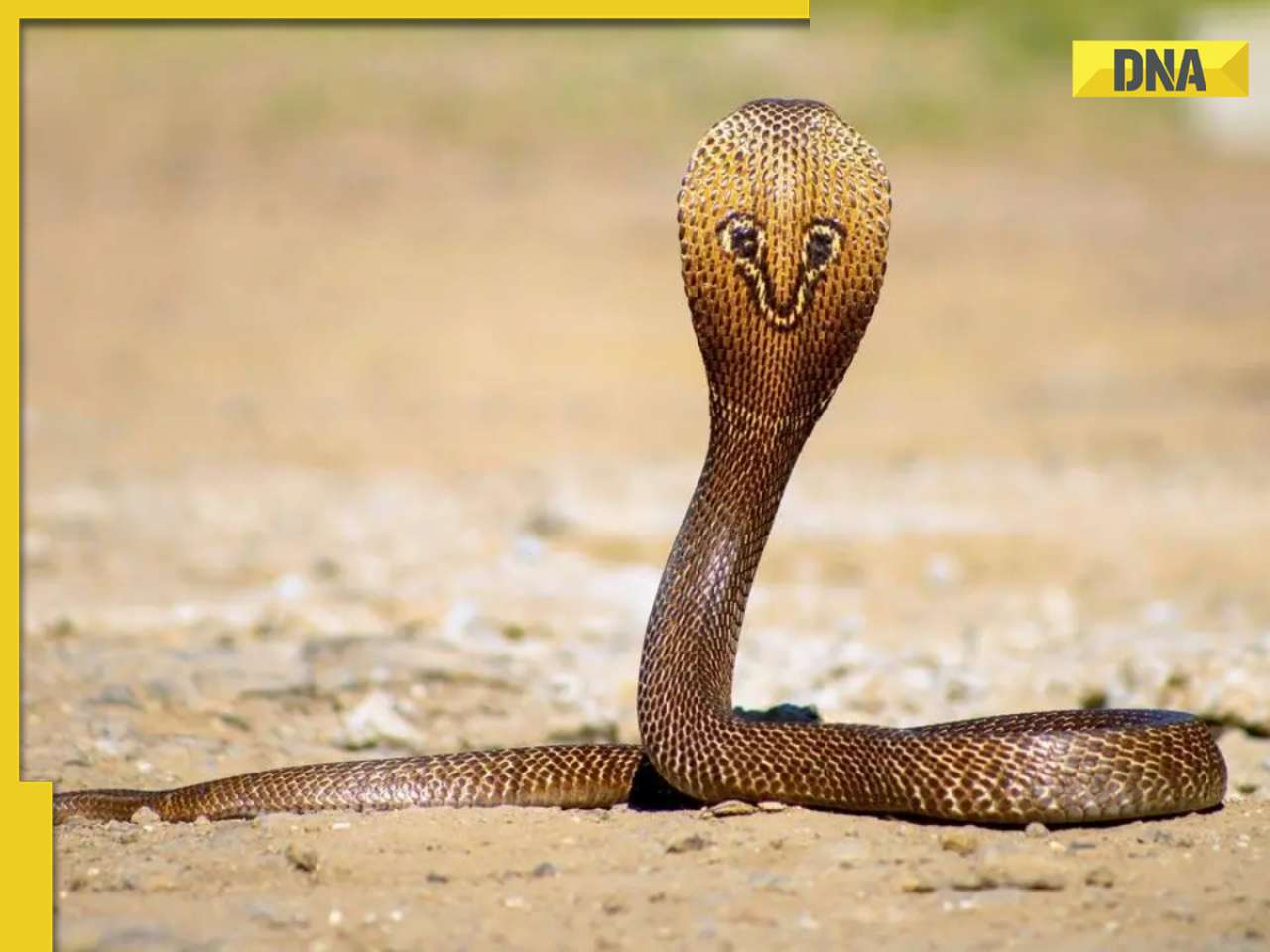

)
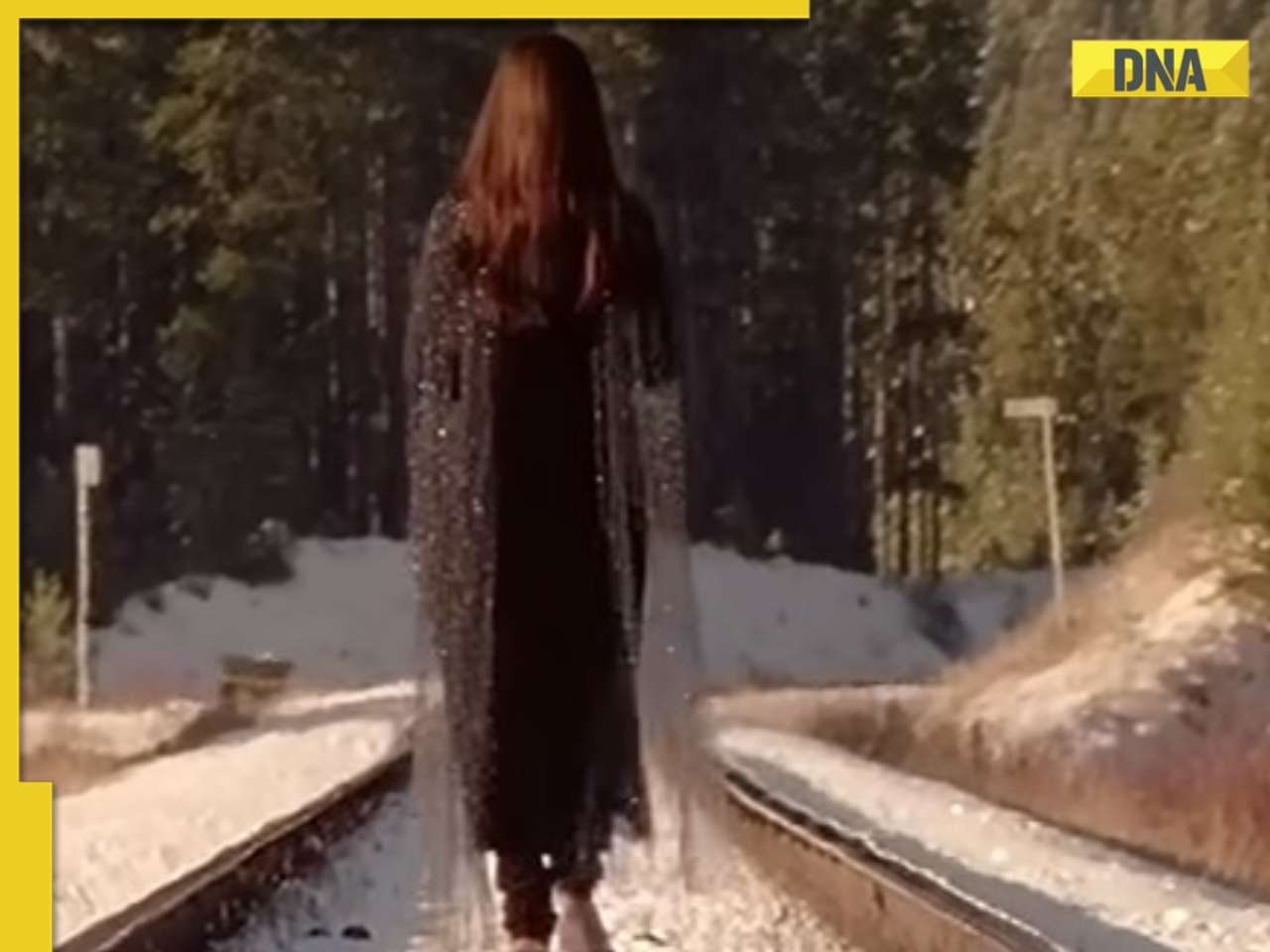

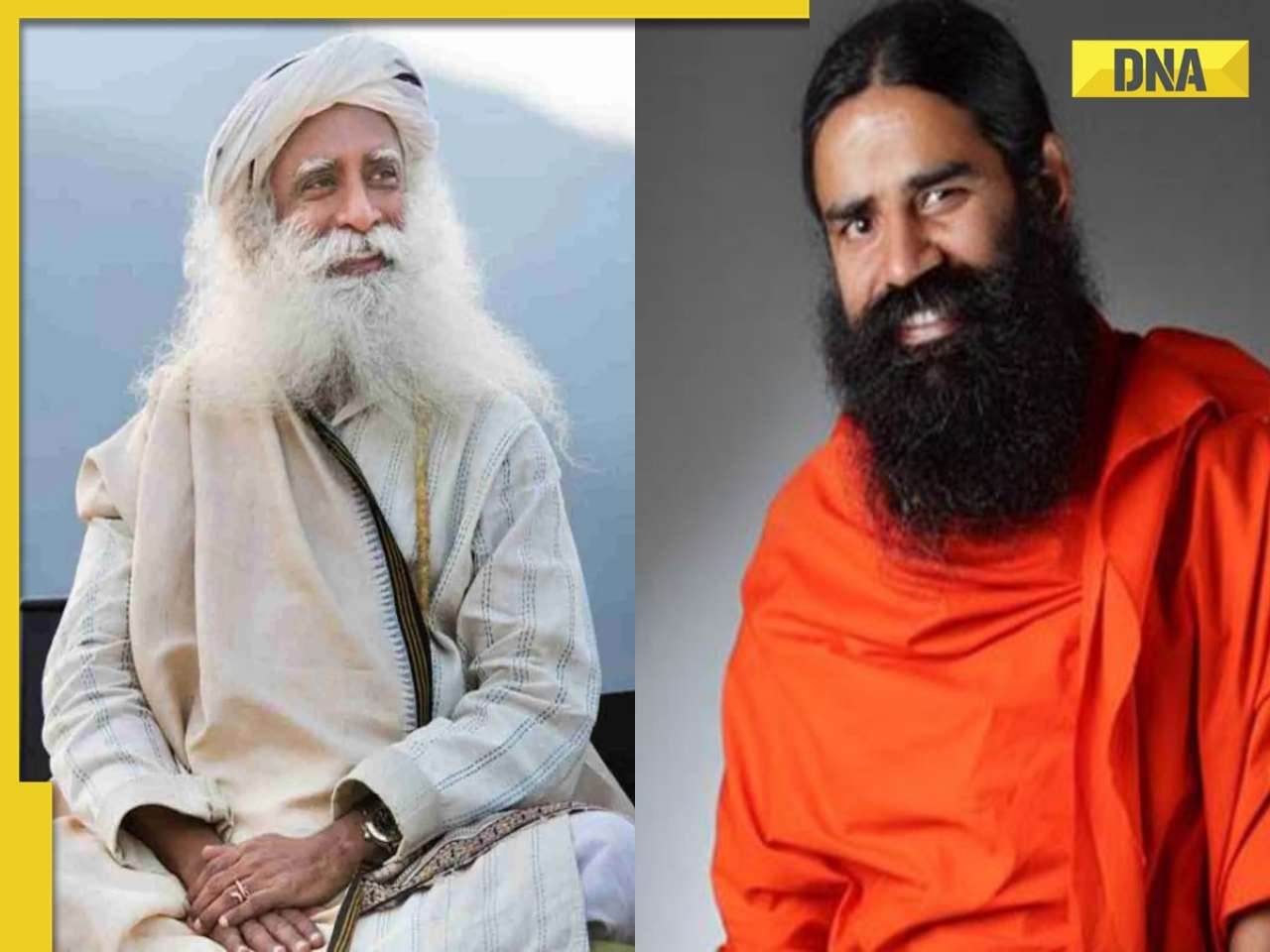

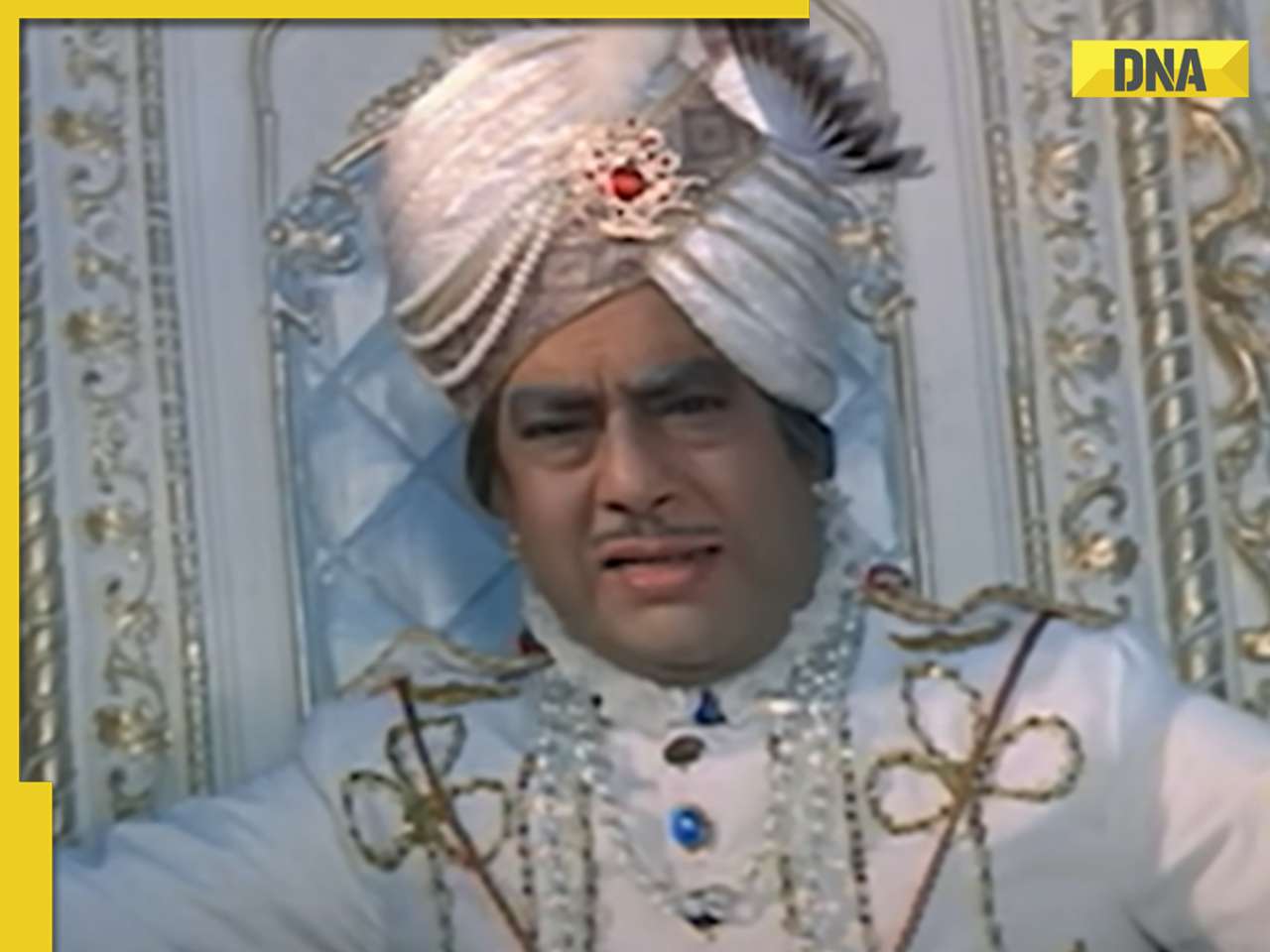
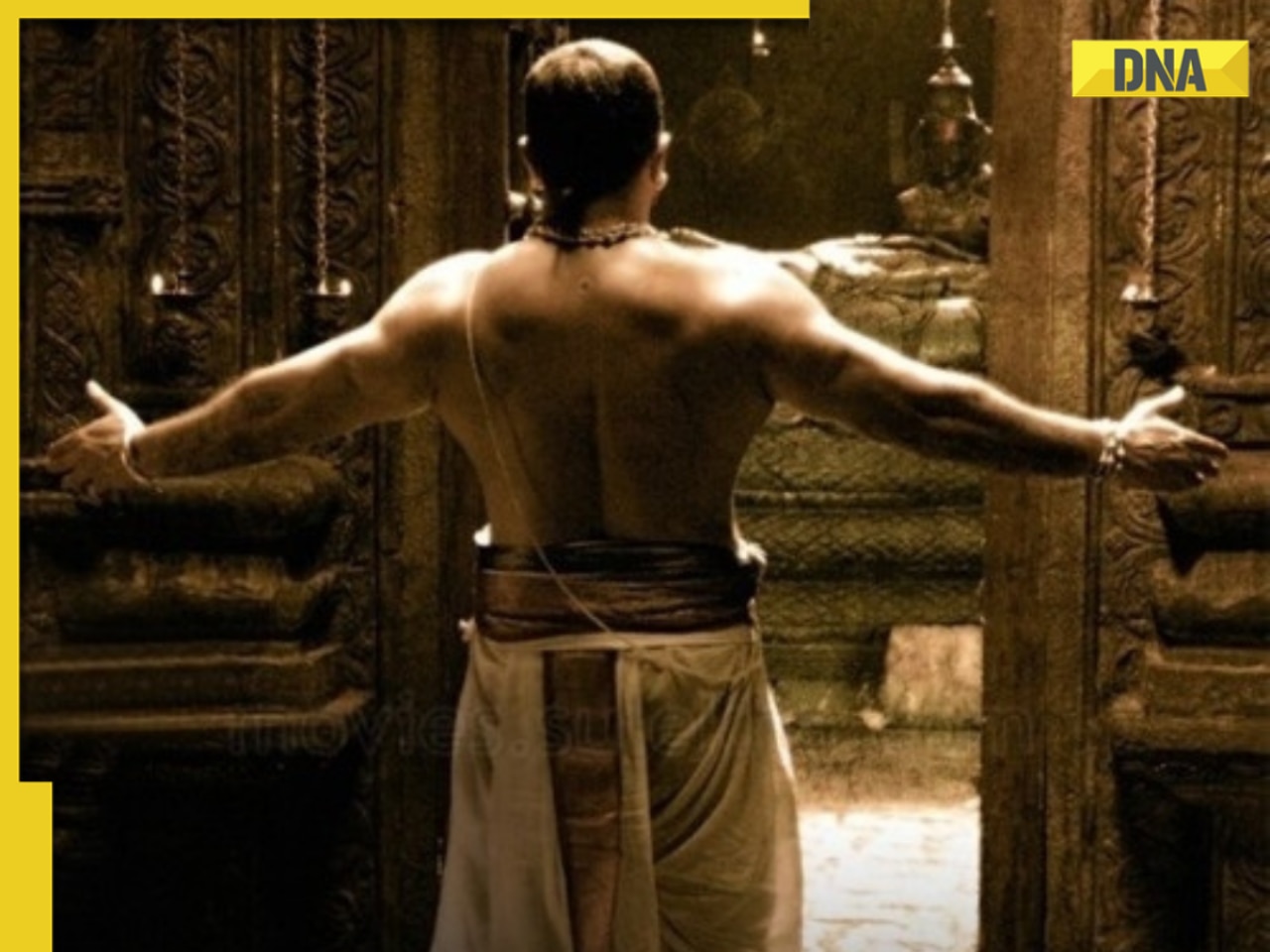
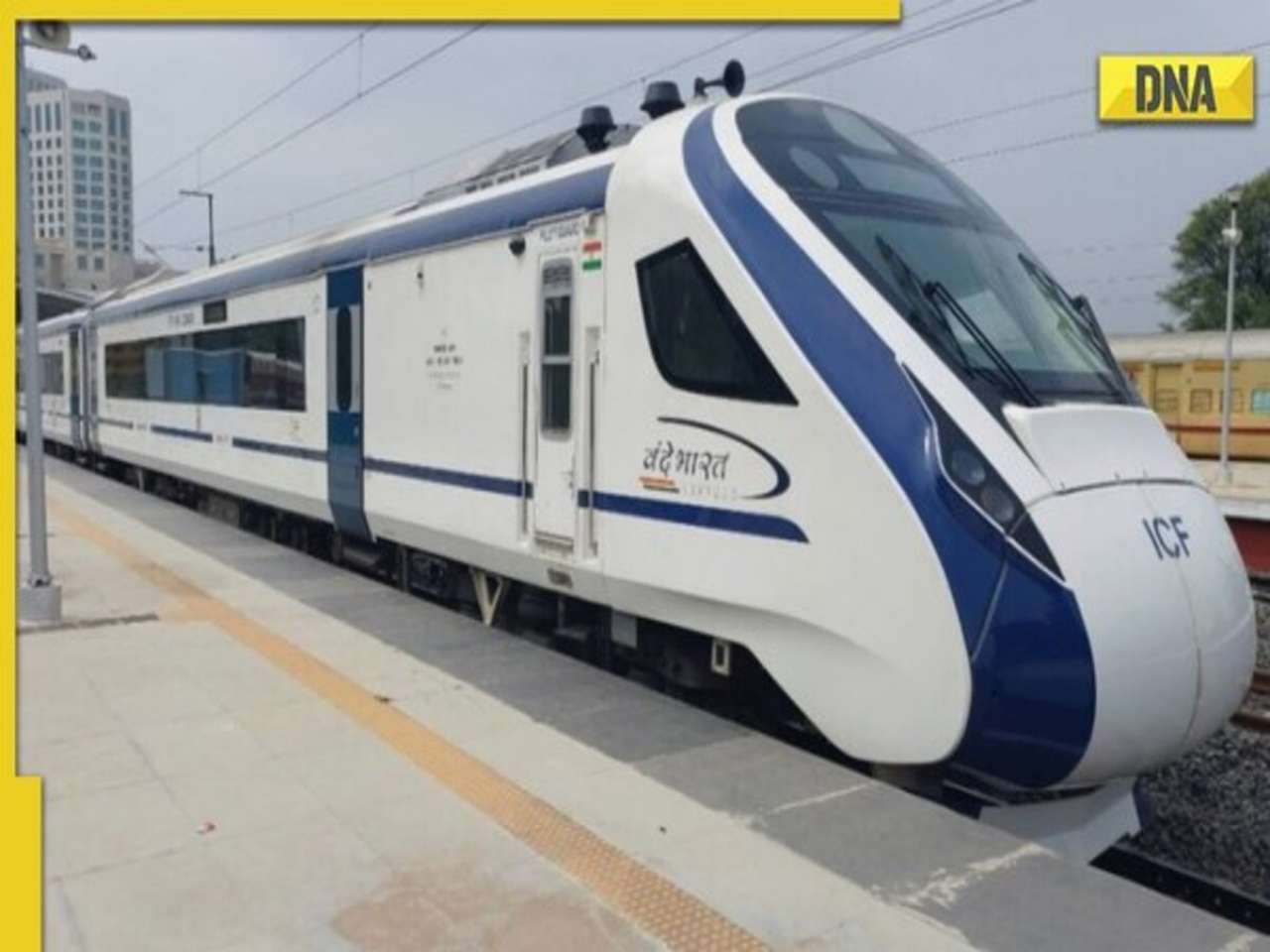

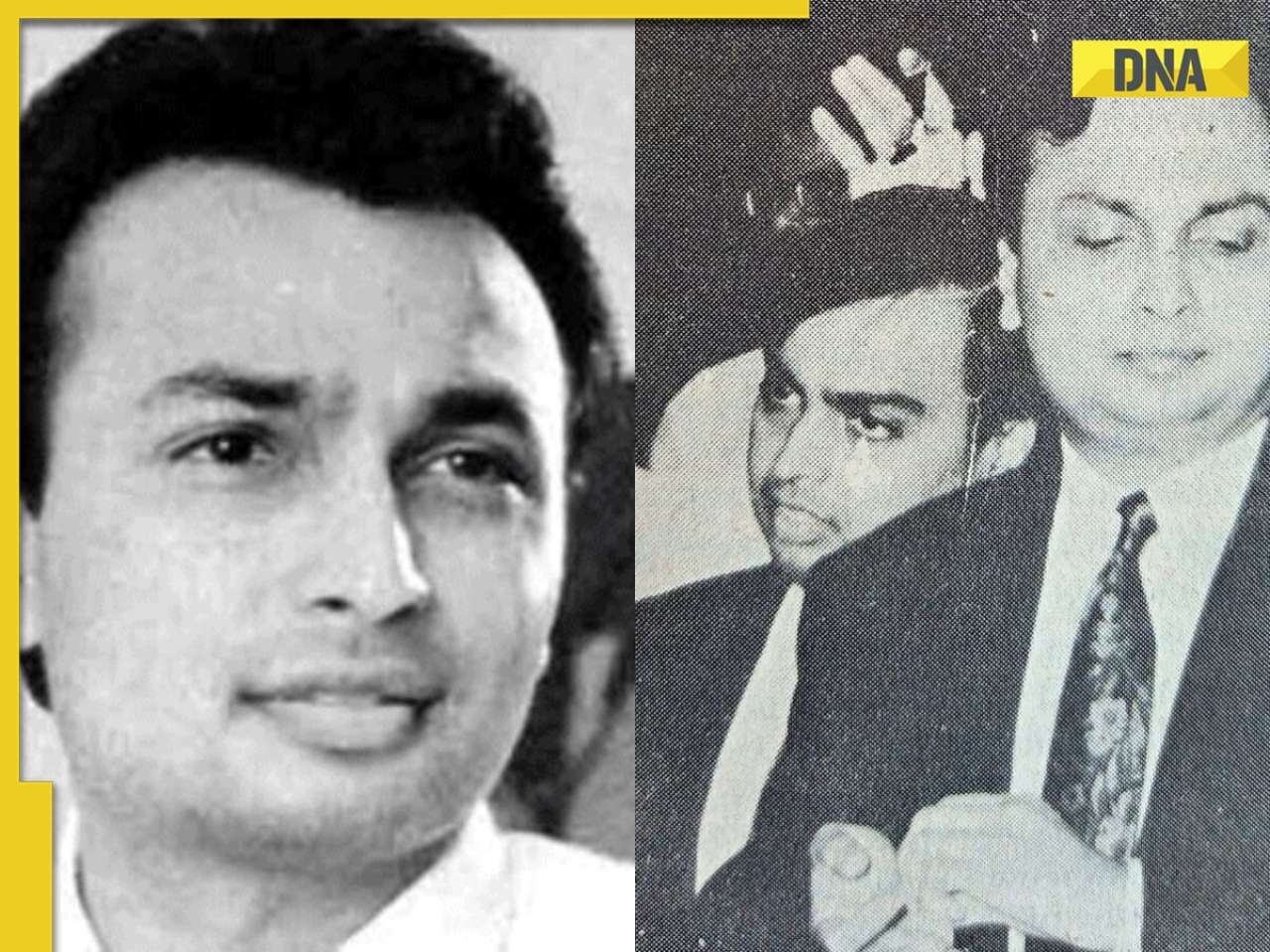
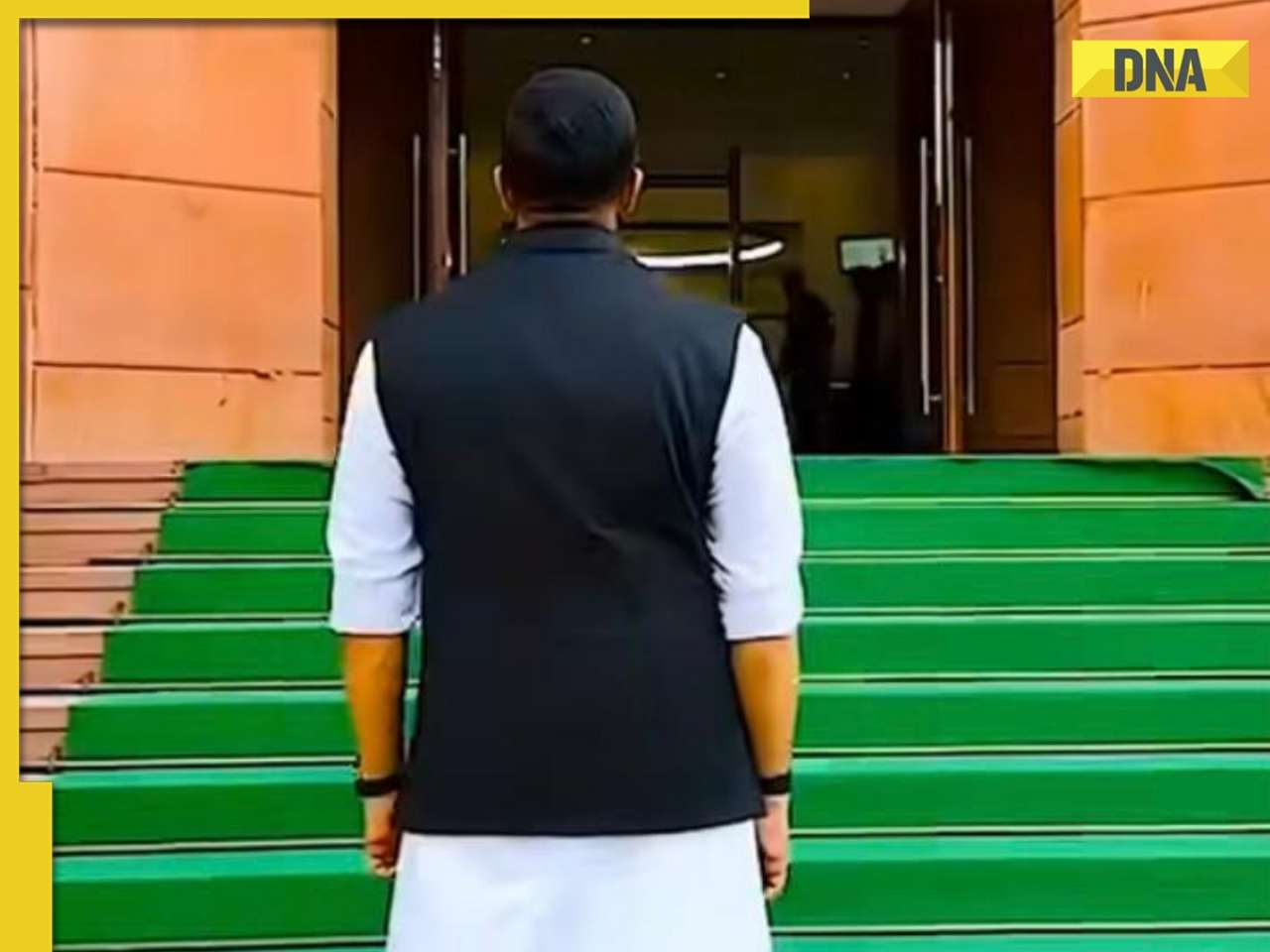
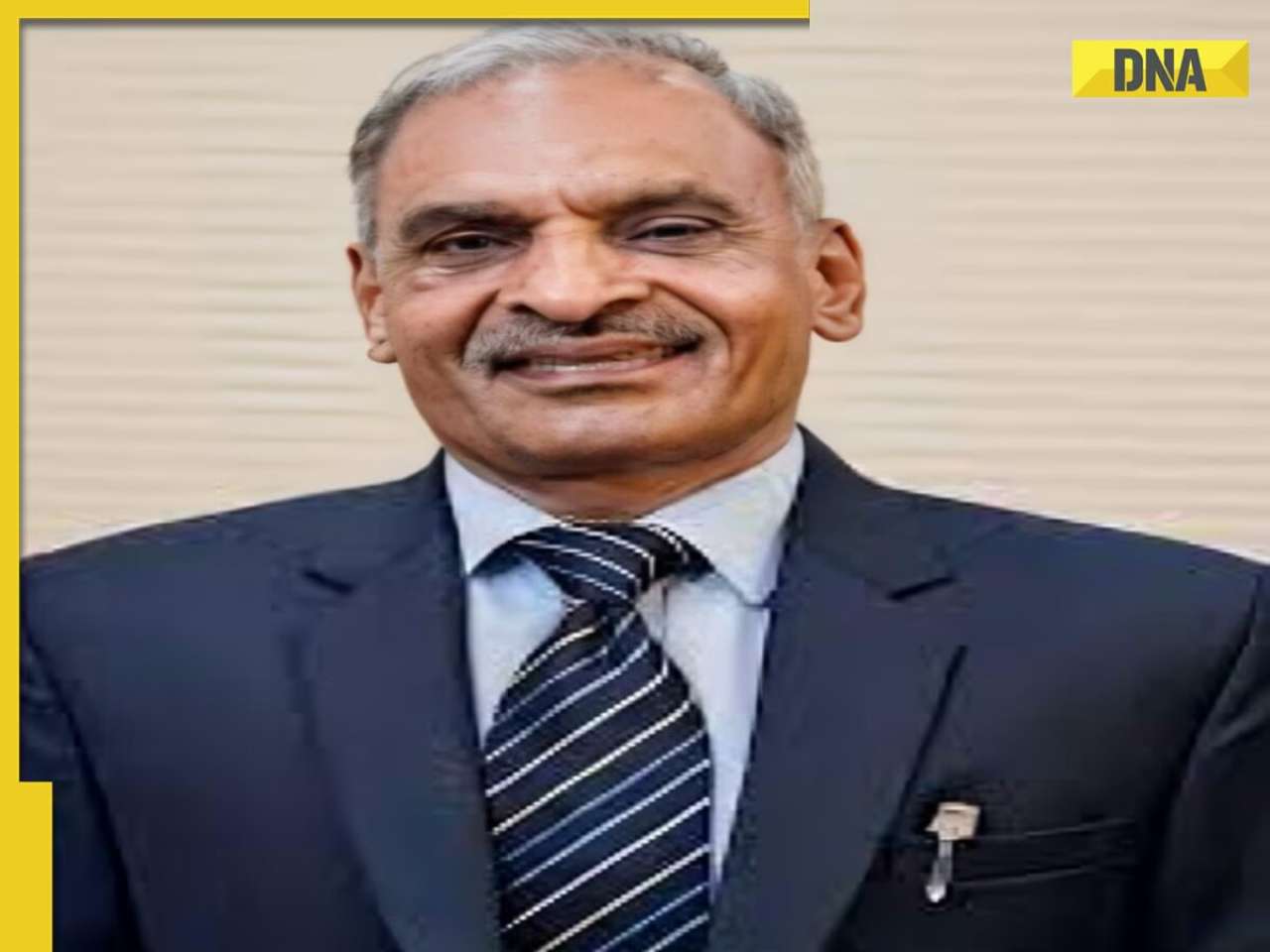

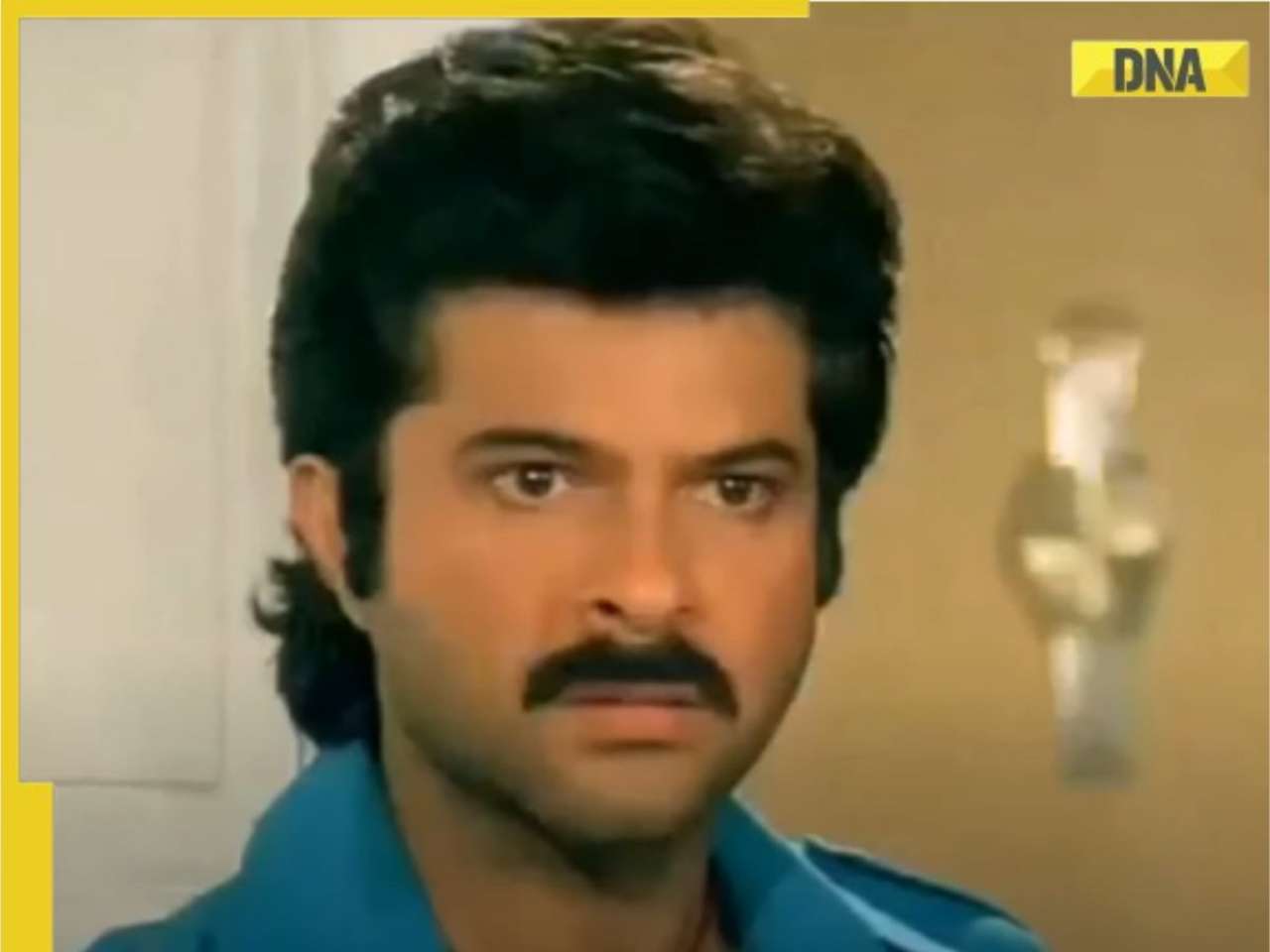




)
)
)
)
)
)